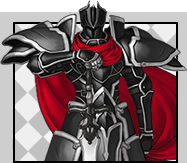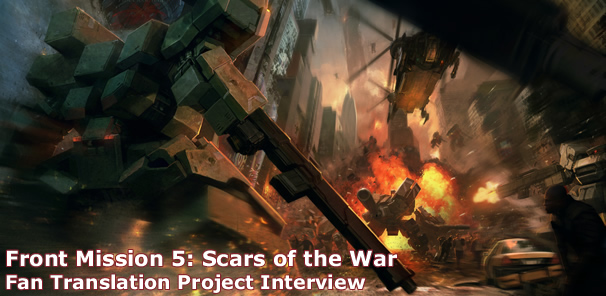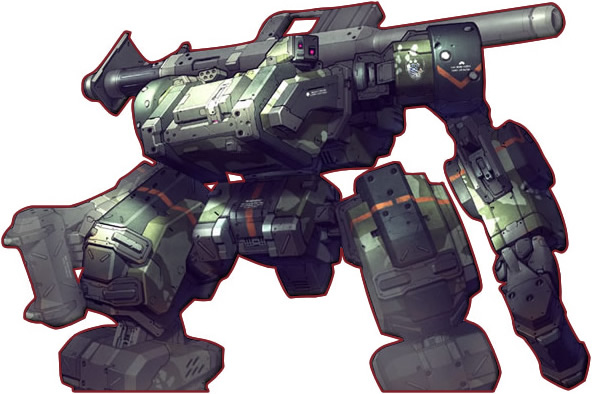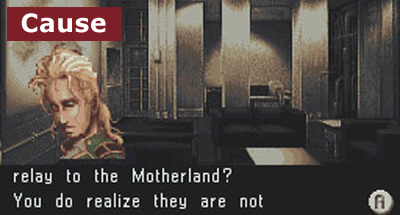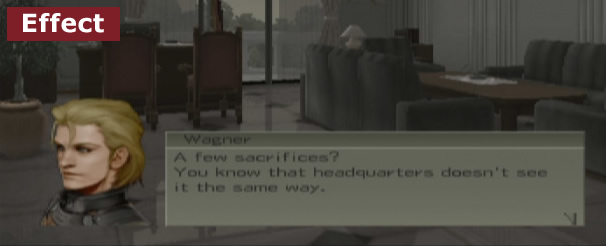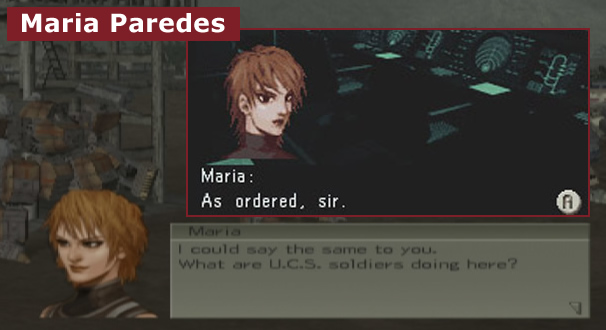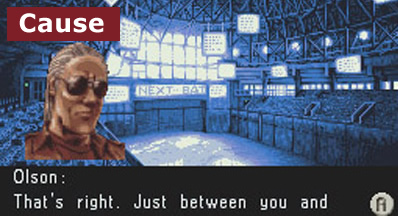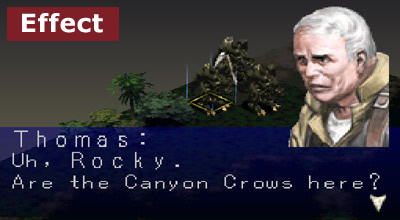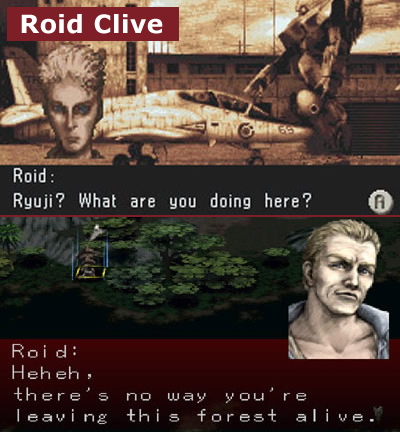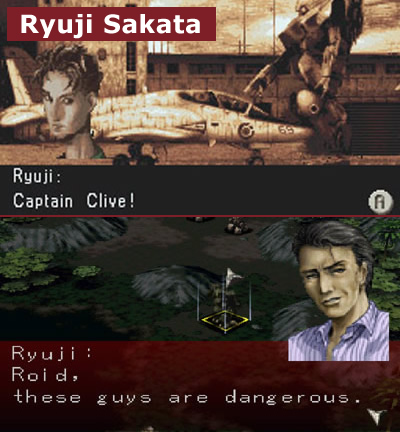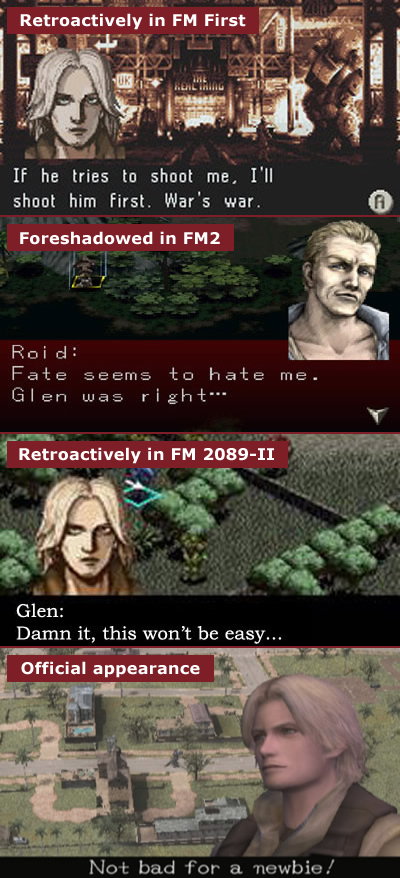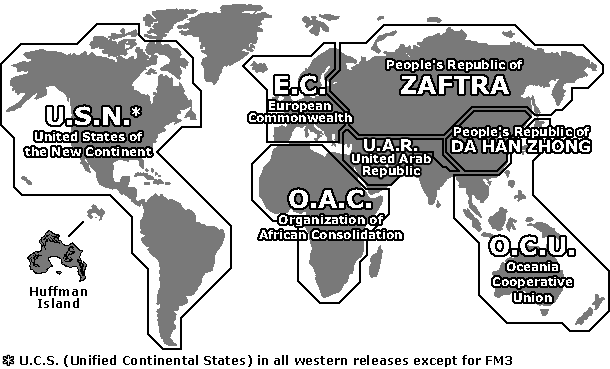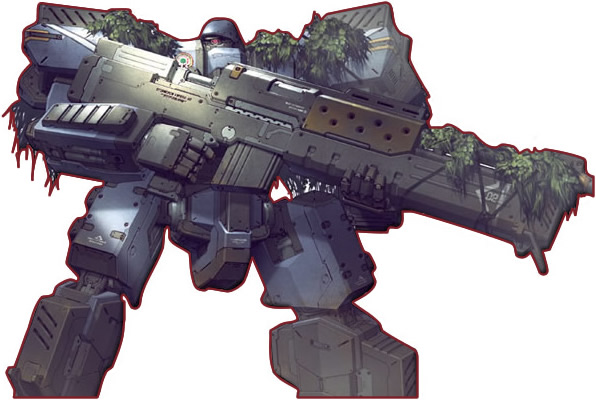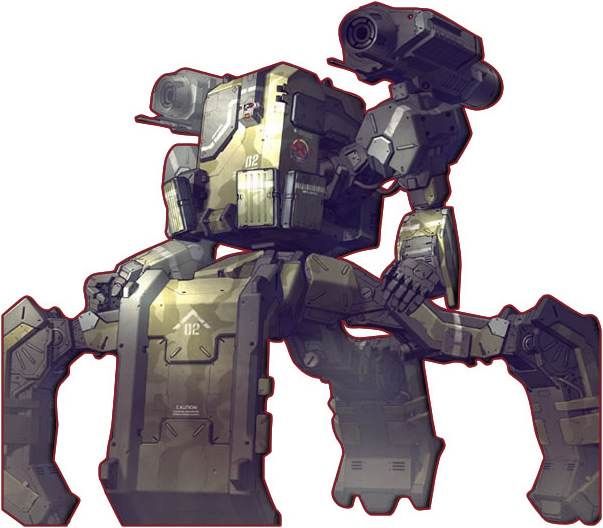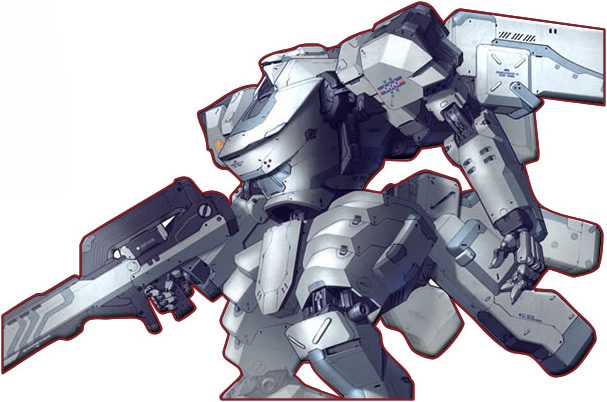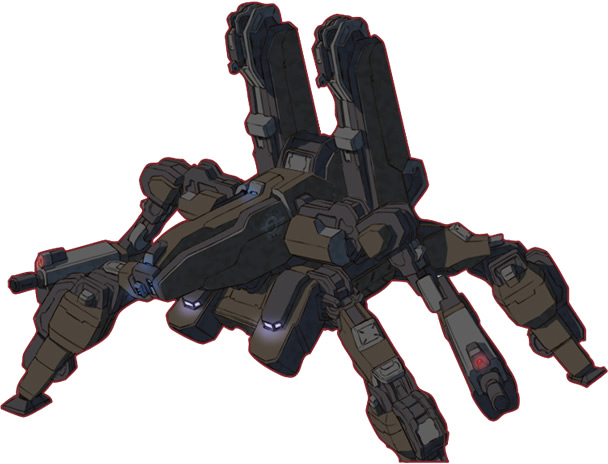|
Strange but true: the most significant TRPG-event of 2009 was delivered to us not by some big serious company with an army of professionals at it's disposal, but by a group of enthusiasts, who in their spare time have created full-fledged english version of one of the greatest games in the genre - Front Mission 5: Scars of the War. As the game's 4th anniversary was approaching and so was the release of the final patch, I contacted FM5 Translation Project Manager - Angelo D. Pineda a.k.a. LegaiaRules, asking him to grant me an interview. Not only he agreed, but other team members participated as well by contributing insightful comments. And so, without further ado, I present to you their narration of Front Mission Saga and the nuances of it's conclusive episode's translation. You're revered as one of the most knowledgeable persons in the english-speaking FM community. You've written numerous in-depth guides and are now spearheading translation of various Front Mission games. What is the source of your affection to the series? What do you consider it's strongest qualities?
I was first attracted to the series looking for an alternative to the fantasy-based RPGs I was playing at the time, examples being Chrono Trigger and Final Fantasy VI. The first thing that clicked was the whole fact that it was a tactical RPG with mecha in a sci-fi setting. Not something you see every day so that stood out like a sore thumb. Playing through the original SNES Front Mission, I was impressed at the customization elements and the game-play wasn’t too bad either. What really got me was the serious nature of the story; it wasn’t about saving the world or simply beating the bad guys. It was a breather of fresh air from the usual games I had been playing. Front Mission 2 sold me on the series as being a very realistic impression of what our world could look like in the future. Unlike in Front Mission, it was much more grounded in realism and the introduction of the political component made for a riveting, mature story. It also laid much of the groundwork behind the future Front Missions, from stories to play mechanics. After beating it, I decided to start look forward to more games in the series. While I have different opinions on each one, the main constant all shared was developing an in-game universe that was very believable in many ways. In Front Mission, there are no "good" or "bad" guys; there are only people who fight for what they believe in and justify as "right". One person’s "right" is another person’s "wrong" and so on. As such, I believe that Front Mission’s strongest quality is how every element comes together to create the greater whole. In interviews I’ve read with the series visionary and creator, Toshiro Tsuchida from Product Development Division 6 at Square Enix, he stated the desire to create something that reflected our world and the developments going about daily. Likewise, Mr. Tsuchida wanted to create play mechanics that reflected these developments in the games. This holds true as each Front Mission’s play mechanics reflect the setting of the games themselves. As a true Front Mission fan so to speak, I’ll briefly go over the games and their play mechanics: Front Mission Alternative A continent thrown into chaos and disarray inspires play mechanics that have branching stories and endings. The real-time strategy genre portrays the struggles of the IMAC (Independent Mobile Attack Company) in their attempts to bring order back into Africa. Front Mission 2089: Border of Madness As tensions rise on Huffman Island, an island near South America, mercenaries are employed by the O.C.U. (Oceania Cooperative Union) and the U.S.N. (United States of the New Continent) in espionage operations. Play mechanics involve recon and espionage-based missions where all-out war with the enemy is highly discouraged. Front Mission First The renewed conflict between the O.C.U. and U.S.N. on Huffman Island is left to the hands of a mercenary group, the Canyon Crows, and an independent strike force, the Silver Lynxes. Play mechanics resemble standard military combat affairs. Front Mission 2 A violent and sudden revolt grips the country of Alordesh (Bangladesh renamed) in fear. Large-scale, multi-objective missions portray the all-out war atmosphere that the poorly equipped O.C.U. military wages against the overwhelmingly stronger Alordesh coup d’etat forces. Front Mission 3 O.C.U. civilians are caught up in a global conspiracy involving a weapon codenamed the M.I.D.A.S. and the struggle to find it before a catastrophe happens. Play mechanics emphasize quick, small-scale skirmishes against a myriad of enemies. Front Mission 4 Trouble is brewing in the country of Venezuela and in Europe, with fears of a new world war rising on one hand and a country’s revolution on the other. Squad-based combat and weather-time effects result in more realistic skirmishes with the enemy. Front Mission 5: Scars of the War A U.S.N. soldier literally and figuratively scarred by war goes about with his life, trying to make sense of it all. In the midst of the conflicts, he is drawn to a struggle that has encompassed the world for decades. Deeper squad-based combat, the return of all-out wars and quick skirmishes, and the inclusion of true friendly fire results in a fusion of the best play mechanics from previous Front Missions.
On message boards, during FM-related discussions you often mentioned that games in the series are connected. This may not be obvious to those who aren't much into the series, seeing how there's unique cast of characters in every Front Mission and various games are separated by decades. Could you reveal at least some of these connections to us?
This is a bit difficult to explain, but basically, the developers incorporated the use of two distinct stories in every Front Mission since the first one. That is, there is a self-contained story and an on-going story. Basically, the self-contained story involves a cast of characters new to the series and their adventures from start to finish. In this sense, anyone can play a Front Mission game without having prior experience to the series. The on-going story, on the other hand, looks at the deeper issues affecting the world around the said cast. An easy way to compare the two is that the self-contained story is character-driven and the on-going story is world-driven. One ends as the game ends, while the other continues into future Front Missions until the story is resolved. The purpose of this story is to maintain continuity between the games and to show a cause-effect relationship. The major focus of a story in one Front Mission gets relegated to the background until the links are explained. Usually, these recurring plot elements are accompanied by recurring characters involved in those stories. While this is not often the case for all recurring characters, it does help create a deep, realistic world. A major on-going story is the Zaftran conspiracies (FM First and FM4).
The Zaftrans were implicated as the ringleader behind the 2nd Huffman Conflict. Driscoll, a U.S.N. captain, was the Zaftran artificer who manipulated events in the war to complete the development of a biocomputer called the B-Type Device. This plan was to a means to revive the Zaftran economy, which had been battered by the loss of natural resources exports.
After the events of the 2nd Huffman Conflict, suspicion towards Zaftran activities rose. In another attempt to reviving their economy, the Zaftrans attempt to start a world war between the E.C. and the U.S.N. Zaftran covert agent, Rolf Wagner, helped the Zaftran Army conduct attacks on German bases and a Polish resource base to trigger an E.C. resource crisis. A part of the plan was to coerce the E.C. into buying exports from Zaftra again. Recurring characters involved in this story include:
Another major on-going story is the O.C.U.’s relationship with mercenaries (FM First and FM2).
After the end of the 2nd Huffman Conflict, the Canyon Crows mercenary group deserted the O.C.U. military. It was later revealed that they exposed the lies behind the war and caused an international movement to find the truth. Eventually, the O.C.U. government admitted that part of the allegations were indeed true, causing them to lose credibility worldwide. The chain of events started when the group realized their commanding officer, Guri B. Olson, was planning on using them as B-Type Device materials.
Upon the closure of the Sakata Industries scandal, the O.C.U. Central Parliament breaks all ties with mercenary groups and passes legislation banning them from working for the O.C.U. As an aside, they secretly order the military to hunt down and prosecute the Canyon Crows for their crimes against the supranational union. Rocky Armitage, a former O.C.U. Spec Ops member, tracks the Canyon Crows in Alordesh and persuades his teammates to pursue them. Recurring characters involved in this story include:
Another part of on-going stories and recurring characters is the element of foreshadowing. In some cases, characters and on-going stories are foreshadowed in a Front Mission prior to the one they appear in. Out of the 70 recurring characters, only a handful is foreshadowed. Some are retroactive appearances in that they were added to a Front Mission, like the port of Front Mission First. Foreshadowed characters include: GLEN DUVAL, Front Mission 5: Scars of the War Glen is one of the antagonists in the game, operating as the right-hand man of Morgan Bernard with the Grimnir terrorist organization. Prior to that, he was heavily involved in border operations on Huffman Island. He is friends with the Canyon Crows leader, Roid Clive, a mercenary group that backs the Grimnir’s philosophy.
MORGAN BERNARD, Front Mission 5: Scars of the War The series antagonist, Morgan is the world’s greatest terrorist and the leader of the Grimnir terrorist organization. An ex-medical doctor who worked in war-ravaged areas treating the injured, Bernard developed pro-nationalist views after seeing the horrors of conflicts started by the supranational unions. His ultimate goal is the destabilization of these unions, thereby returning to the nation-state. All supranational unions have been the victims of a never-ending stream of incidents caused by the Grimnir since 2080. Their support is global and paramount, from politicians to military brass.
As illustrated in the examples above, this is a series with what I call "progressive continuity". With every passing game, the Front Mission universe expands and expands. Like a good TV serial, the best place to start is from the beginning. If these examples seem a bit too confusing for you, playing the Front Missions and paying close attention will help you understand the intricacies of the in-game universe. On average, the self-contained story takes up 80-90% of the overall story whereas the on-going one takes up the remaining 10-20%. The only exception is Front Mission 5, where there is an even 50-50 split between the two stories. More details will also be revealed in one of our other projects (see below for more details). Going back to the game, Front Mission 5: Scars of the War closes out the series by focusing on the main political on-going story: the ideological struggle between nationalism and globalization. It’s a conflict that is affecting us right now as we move to a future of supranational unions like the European Union and plans for a North American Union. There are a lot of questions to ask but ultimately, what is "right" and what is "wrong"? I guess we’ll find out in the next few decades or so! Lastly, as to maximize the effect of the story, I highly recommend actually going through Front Missions First, 2, 3, and 4! Even though many of the on-going stories resolved pertain to First and 2, they’re all pieces of the bigger puzzle. Heck, even 2089: Border of Madness has some relevance in the grand scheme of things!
Front Mission is easily Square Enix's most westernized RPG brand. The setting is very realistic, the plot is complex and serious, most of the characters belong to european race and even in the japanese releases of some games the interface is in english. Still, despite all this, the series isn't very popular in the West. Why do you think things have turned out the way they did?
I think the major problem lies in how the North American branch of Square back then and now Square Enix handled the series. While I understand that releasing Front Mission 3 might have been due to the company’s recent successes, they should have followed up with releases of Front Mission First (the remake of Front Mission) and Front Mission 2. Additionally, they should have created a website dedicated to the series and informing others about what it is. A series of this depth and complexity practically necessitates a site to break it down piece by piece. Front Mission 4, for example, might have been better received if it was marketed that the game’s stories were in part a continuation of Front Mission First’s. Another issue lies in the poor handling of the series’ advertising overseas. Front Mission 3 had a fair bit of ads, but apart from that, it was a hard find. Front Mission 4 was noticeably much easier to find, but I think they spent more advertising than what was needed. Lastly, Front Mission First for the Nintendo DS was a complete no-show and the only way you would know it existed was through word of mouth. I actually read about the developers’ disappointment at the lack of advertising on their old project blog too! It baffles me how a successful video game giant could not get one of their oldest gaming series right outside of Japan. Although they appear to actually be trying with Front Mission Evolved, the damage has already been dealt. Square Enix is attempting to reboot the series with Front Mission Evolved. The news of it weren't exactly welcomed with joy by gaming community, since not only it abandons turn-based roots of the series in favor of action-packed real-time, but it also is being developed by western company, which is known to have made rather mediocre games before. What are your thoughts regarding Evolved and the future of the series?
While I can’t pass judgment on Front Mission Evolved until I’ve played it, I do believe it’s a reboot of the series. With the closure of the major on-going stories in Front Mission 5, Evolved looks to start things over with new stories and topics. I am concerned that the game was given to a development team with a questionable track record rather than the Front Mission developers doing it themselves. Having played Front Mission Online, I personally don’t have a problem with the genre change to third-person shooting. However, based on what I have seen so far, Evolved seems to be a drastic change away from the meticulous quality and work put into Online. Front Mission Online, for the uninitiated, was an excellent portrayal of Front Mission in third-person shooting format. The customization parts remained the same, but it was how the play mechanics worked that made Online stand out. True to the series, combat was very team-oriented and focused. You couldn’t blindly attack anyone without being destroyed seconds later; you had to work with your team in order to succeed. The scope of the battles was truly something to behold; during major plot-based campaigns (such as the Freedom City invasion), you could see as many as 50 wanzers and other military weapons fighting on the battlefield. The Online engine would have translated offline very well so I don’t understand why Double Helix had to go and create a new one for Evolved. That being said, I’m actually surprised Front Mission is continuing. Many long-time fans were satisfied with the way Front Mission 5 concluded the series so Front Mission Evolved and any future games are bonuses from this point onward. Obviously, quality is an issue so I do hope that Double Helix can make the game worthwhile. If the series ends at that, then at least the developers were able to do what they wanted.
Your Front Mission 5 translation is among the most ambitious fan-projects of such kind. Still, it went along rather fast and smoothly. In the matter of few years, you had the game available entirely in english. How did your team came to exist? How large is it and how does it function?
Team Composition The development of the Front Mission 5 translation started on December 17, 2007. I opened up a new topic on the Front Mission 5 forums about starting the fan translation and laid out a basic plan for doing it. The plan wasn’t much, but it immediately attracted attention and that’s how the team started. The original team was composed of less than ten people, but this grew over time and stabilized to 20 by the second patch release. Our team members come from many different countries: Brazil, Canada, China, Japan, Poland, Russia, the United Kingdom, and USA. More significantly, the entire team is new to the realm of fan translations. Not one member has had prior experience in this sort of work before until Front Mission 5. Development Process Originally, the team’s operations were unorganized in many ways. Text scripts, for example, were simply extracted from the game’s code without proper formatting or knowing who says what. It was also difficult to locate the files that needed to be translated and much testing was needed to find them. Likewise, assigning the tasks was a challenge as it was our first time working as a team and the roles weren’t properly defined yet. Needless to say, not a lot of progress was made during the first few months. Luckily, there were helpful people at romhacking.net who assisted us in getting started and on several matters. These conditions changed after the second patch release back in August 31, 2008. Starting after the second patch release, I devised a modus operandi that would smoothen out the development process and stabilize the team’s operations. On that end, I organized the team into four main departments: Translation, Editing, Programming, and QA (Quality Assurance). Each department has its own lead, who I maintained regular contact with. The members under each department would work with their leads while I oversaw the whole process. As a project manager in real-life, I find it’s much easier to handle projects when you delegate the tasks accordingly instead of micromanaging everything. With a clear hierarchal structure, everyone knew who to contact for assistance on a project-related manner. Our development process can be broken down into the following steps:
This simple step-by-step process proved to be very effective in terms of development progress. Through this, we were able to set realistic workloads and deadlines for the project. Speaking of deadlines, the team was actually discouraged from doing so by many people in the fan translation scene. Their reasoning was that as "newcomers" on the job, we shouldn’t expect to get anything done quickly. I agreed with them, but many in the team believed that deadlines would help us stay on track in terms of completing the project. Once the team was more established in its routines, we aimed for a three-five month deadline with future patches. Our patch history in terms of dates and the time before the next one illustrates this:
Development Difficulties This achievement is even more impressive considering the difficulties involved with localizing Front Mission 5. As we found out, the game was not necessarily localization-friendly and this showed in many ways. The first major hurdle was the sheer size of the game’s text scripts as a whole. Whereas the other games were relatively light on text, Front Mission 5 went the opposite direction. Instead of just several hundred pages of text, we had to deal with a staggering 2000+ pages! To give you an idea of how big that is, a typical Japanese-developed RPG, as far as I’ve researched, averages around 1000-1500 pages. Tactical RPGs, on the other hand, are not generally as large and the other Front Mission games averaged around 400-800 pages at most. 2000 pages or more is in the realm of games like Final Fantasy XII, which was believed to have around 3000 pages of text. Adding onto the sheer size was the sheer amount of background knowledge needed to properly convey Front Mission 5. As you know, developers always do background research when they make video games. Whether it’s for the game’s story or play mechanics, you need to do some homework first before making it. Front Mission stands out in this area because of its immense depth and reliance on real-life topics and issues. As I’ve said above, this is a series that’s grounded on realism and does a phenomenal job of creating a believable future of our world. For example, the SNES Front Mission fan translation team did a lot of military research to convey that game’s atmosphere well. Of course, the original Front Mission was not very text-heavy and it did not introduce the political aspect of the series yet. Starting at Front Mission 2, the series introduced the political component of the series. Basically, the stories now had a heavy political influence as the games began to reflect the developers’ wish for a "realistic impression of the world" (cited in Front Mission World Historica – Report of Conflicts 1970-2121). In addition, the military and science components introduced in Front Mission became deeper and more complex. Front Mission 5 takes these three components to the extreme as it closes out the major storylines in the series. The most visible of these components is the military influences found in the game. As the self-contained story looks at the military career of Walter Feng, players participate in various branches of the military. To be specific, these branches are the Army, Navy, and Special Forces. At first glance, the dialogue didn’t seem to differentiate between these three, but that was quickly proven wrong during their translations. Rather than risk misinterpreting the military stuff, we wanted to get someone who had actual military experience to help us out. Luckily, it seems that military personnel are also fans of Front Mission so we found someone with Army and Air Force experience to be our military advisor. When our military advisor looked at the scripts, they were quick to point out that there were indeed differences in how the branches operate. For example, our advisor noted that military culture tends to be more serious, no-nonsense in the Army than it is in the Air Force. Furthermore, they were instrumental in conveying how military operations proceed; this helped us flow dialogue from briefings to the actual operation itself. And predictably, our military advisor taught us a lot about military jargon, from acronyms to phrases (MedEvac being Medical Evacuation). Looking back, their assistance made a world of difference in portraying the U.S.N. military, which is based off of the American military in real-life. The political aspect, while not as visible as the military one, was equally important in conveying the nature of the political issues in Front Mission 5. One of our editing leads, as I found out, has had experience working in international relations. Having played through the series to get their political science cravings satisfied, this editing lead also became our political advisor. From topics such as foreign intervention, proxy war, information warfare, socio-economic disparity, it was crucial to convey these properly. Much like our military advisor did, our political advisor gave the team a crash course in international relations and how the series’ conflicts have real-life bases behind them. Next, the science aspect was also a major component of the game. Unlike the previous two components, the science part pertains to a wide range of sciences including neuroscience, nuclear science, and psychology. Despite being considerably less heavy than the military or political aspects, we did extensive research into these areas as we did not have dedicated specialists in these sciences. Some terminologies such as GCS (Glasgow Coma Syndrome) or engram (memory retention without the use of the brain) were some of the things we researched. All in all, I’m personally amazed that we were able to go through so much background information without losing our minds! Lastly, the final major obstacle during the translation and editing stages was Front Mission continuity itself. Having been billed as the "grand conclusion" during the Japanese release back in December 29, 2005, the main challenge was how to convey it. As the series was not properly marketed and introduced overseas, many overseas fans don’t really understand what Front Mission is. This posed a serious challenge in that Front Mission 5 assumes the player has already gone through the previous games (First, 2, 3, and 4). A lot of the plot connection dialogue was to the point in that the game expected you to know what those links were. Obviously, we couldn’t do the localization this way so we brainstormed how to tackle these hundreds of connections. In the end, we found that the middle ground was the best approach. Tailoring the continuity elements to those with some experience was easier to deal with than those with none or those with the whole package. On the programming front, I won’t go into much detail as our programming lead’s commentary has more details. Long story short, our programmers found Front Mission 5 to be a challenge to say the least. I’m not very good at explaining technical jargon in laymen’s terms so please read their commentary for more details.
You have recently revealed that translations of Front Mission 2 and Front Mission Alternative are in the works as well. Do you plan on making all Front Missions that weren't released overseas by Square Enix available in english? Do you plan on translating anything outside of this series? Lastly, do you plan on doing something different than translations?
I think for now, Front Mission 2 and Alternative will keep us busy in the future. Front Mission 2089: Border of Madness is a possible third project, but for the time being, it won’t be worked on. Front Mission 2089-II, the last of the canon games, is impossible to do because it’s still only for mobile phones. It’s a shame because from our team member who has played it, that game is vital to the Huffman Island story as a whole. Unless it gets ported to a system like the Nintendo DS, this one unfortunately will remain in Japanese. Front Mission Evolved is out of the question here though. Aside from the Front Mission series, any other translations would depend on what the team wants to do. I personally want to see some other Square Enix games like Sigma Harmonics translated, but I’m open to other forgotten hits as well. On non-translation matters, the major thing the team has planned is Front Mission: The Classified Documents. In a nutshell, it’s our version of the series databook, Front Mission World Historica – Report of Conflicts 1970-2121. It will be a 250+ page book that covers the series from characters to plot connections. We’re expecting to finish it sometime next year in 2010. Fan-made translation patches stand on a somewhat shaky legal grounds. They aren't made for profit and are an obvious good for the community, allowing people to enjoy high-quality games they wouldn't be able to otherwise, but not all companies endorse them. Square Enix in particular is notorious for sending C&D letters to various groups of enthusiasts. Have you entertained the possibilty they might someday decide to shut you down as well? Will you abide by their decision or will you fight back?
As a team, I think we’ve all expected Square Enix to find out about the project at some point. The big question was to avoid the C&D so we did some research on what projects tend to be shot down and which ones survive. From that, I noticed that any project that attempts to create new material, like the Chrono Resurrection project, get the C&D. Projects that are strictly fan translations tend to dodge the bullet, so to speak. Our goal with Front Mission 5 was to make it playable in English and that hasn’t changed. We did, however, had to alter our website to be more legal-proof against any possible Square Enix interruptions. Our website manager had to take down some links that were legally in the grey area and edited the text, particularly the donations page, so no one misinterprets our message. I’m not sure whether or not the company does know the project exists, but there’s a good chance that they already do. In the case Square Enix does send us a C&D letter, we will not shut down operations until we get our voices heard. I think it helps that one of the older developers, Koichiro Sakamoto, openly commented that fan translations were good for the community at E3 2007. This comment was made when he was asked about the SNES translation of the original Front Mission. Front Mission is not a well-known series and if anything, our fan translation projects are giving it much-needed attention. If they still insist on shutting us down after we make our voices heard, then we will respect their wishes. Aside from the Square Enix, the project has been well-received by industry professionals. Employees from companies like Electronic Arts Vancouver, Koei Canada, Ubisoft, Activision, Rockstar Lincoln (UK), Majesco Entertainment, DTI Soft, Eminence Symphony Orchestra, and DoubleJump Publishing sent us messages about the project since we started. They praised the work we put into it and told us they were eager to see the final product. Most of them were genuinely surprised and impressed when I replied that the team is new to the fan translation scene. Some couldn’t believe that Front Mission 5 was being done by "a bunch of newbies" in their own words. I think that says a lot about the work we’ve put it to deliver a high-quality translation of the game. We hope that we can do the same for the other Front Mission games if the project continues. Are there any other TRPGs that you hold in high esteem? Have you played Ring or Red? It's setting and mood is quite similar to that of Front Mission, although it's more complicated and harder in general.
Some of my favorite tactical RPGs include the Fire Emblem series, Final Fantasy Tactics series, and Disgaea series. While all three are certainly different in their own right, they each bring something to the table that I believe all tactical RPGs should have. I’m also eager to get Valkyria Chronicles as I’ve heard it has unique play mechanics that could be the future of tactical RPGs. I have also played Ring of Red and I do enjoy the game as an alternative Front Mission! It was actually developed by former Front Mission developers, surprisingly. While it certainly doesn’t come close to Front Mission in many ways, it has its own unique way of doing things. After all, that’s the fun of video games! Now that this project is finally over, I hope you enjoy 1000s of hours of hard work we’ve put into this localization! Front Mission is a truly special series that deserves more attention and praise for the work that Mr. Tsuchida and his developers put into it. As I’ve learned, fan translations are pretty cool and hey, if no one will do it, then we the fans will!
Translation Lead, Vicious_KAT
How does Front Mission maintain continuity? Well as LegaiaRules can attest there’s a MASSIVE amount of linkages between games either through references to events (The 2nd Huffman Conflict etc.) or through characters (Roid etc.). Ultimately though I think the continuity of the great power conflicts and the skulduggery behind them is what keeps things going. Can't forget all those nice shiny wanzer models either! Thoughts on series' future Well I'm hoping for the best with Front Mission Evolved, at least for some interesting new developments in the overall series plot progression. It's progress to see a Front Mission game get a worldwide release. Developing FRONT MISSION 5’s translation When I started out working on the Front Mission 5 translation I had just returned from a year of intensive Japanese study in Kyoto, and was beginning my fourth year of Japanese language studies. I got into the project first because I loved the series and had always admired the work that the original SNES Front Mission translation team had done, and second because I felt I needed a big project to get me out of classroom Japanese and into something a bit more practical. When we started out the project the text dumps were unedited and unorganized, and it was a major challenge just to make sense of who was saying what to whom! As for "practical" Japanese, I had a rude awakening when I ran into Ed's dialogue. Every time he had some lines I felt like I had run into a translation boss fight, having to parse out normal Japanese slang, and even some original Ed-isms. At first it was a bit much for me, and I spent a summer just doing the in-game tutorial translation, which was very much textbook Japanese, and slowly worked my way up to translating colloquialisms in the main base scripts. As time went on we got more organized, and the scripts were delivered to me in neat segments that let me make more sense of them, but the size was always daunting, and it was only the motivation offered by everyone on the team's collective efforts that kept me going until that last page was done. Aside from that I found I needed both an encyclopedic knowledge of the Front Mission timeline and universe (LegaiaRules was a huge help there) as well as a pretty thorough knowledge of world affairs and military history, which the series is famous for. I'd never even heard of Operation Eagle Claw before I worked on Front Mission 5, but I had to study up on it in order to understand the script! Possible non-Front Mission translations? Haven't really thought of it yet with Front Mission 2 still on our plate. I might do a re-translation of Final Fantasy Tactics just for fun. Favorite Tactical RPGs? Final Fantasy Tactics. I love the Front Mission games, but this one is my favourite game of all time. Played Ring of Red? I've played Ring of Red, and I loved the setting, but the game mechanics were a bit sluggish for my taste. Closing comments: Translating the game was a great learning experience, and I encourage anyone interested in fan translations to give it a try, since every additional translator out there contributes to making this a better community! Editing Lead, slavikcc
Developing FRONT MISSION 5’s translation My contribution to the Front Mission 5 series was originally supposed to be minor, working on editing the pilot information but as soon as the project grows with some breakthroughs in editing and replacing the Japanese text, LegaiaRules offered work for the cut-scene subtitles and bases. At the time of the project, I was majoring in Political Science with Canadian politics and international relations as part of my academic background, so I've delved deep into the lore and the political issues between varying consolidated nations. We found out how large the problems with consolidated nations, especially the O.C.U., which was marred in economic disparity and gaps and racial conflicts between Australians and the rest of South East Asia. All states were not exactly benign either, as they had a hand in various atrocities and crises throughout the world, including terrorism and clandestine operations. What made Front Mission different is the grand scope of the world, including international relations, with plausible but very realistic issues. Vicious_KAT helped us gather more background information and story with his translations, giving everyone a heads up on how big the universe had became. As both a political scientist and a gamer, I have honestly never saw a rich and deep storyline ever before. My academic learning of politics really helped me appreciate the universe and contribute the team as a political analyst in the game. Along with school work, we've broken through technical difficulties and issues, which help bring out both the political and story aspect of Front Mission 5 more than ever. Previously, as one of the two editing leads, we had to deal with fitting the amount of text shown on the event cut-scenes, which significantly hampered our ability to bring forth the story and emotions conveyed by the characters. Our translations and edited work had to be compromised while retaining both the story and accuracy, which was the most difficult aspect of my contributions. Imagine having to calculate each character and letter while going through over SIXTY cut-scenes while having to fit in with the story and the character's emotions. After over two years of work, I honestly did not expect the project to make it this far. What helped me stay with the project since the very beginning is not just how great the game-play is but how strong the story and political background in the Front Mission universe. My academic background has certainly helped me not only learn about the potential problems with consolidated states, which is still on-going in the European Union, but also solidify my university studies and arguments regarding international relations. Possible non-Front Mission translations? I don’t think we have plans for anything outside of this series at this point. Probably whatever we all work on, like LegaiaRules says. Any work that’s not a translation? We are currently working on the Classified Documents book that will span many pages detailing the secrets and lores in the Front Mission universe, including certain wanzers and political climates for each nation. Favorite Tactical RPGs? I have played Final Fantasy Tactics and the Disgaea series and other TRPG's from Nippon Ichi, which I enjoy quite well outside of the Front Mission series. I hope to get a chance to own a copy of Valkyria Chronicles someday... Played Ring of Red? I have played Ring of Red, which has a more realistic Cold War-era feel. Although the game-play has plenty of potential, the game became too slow-paced and repetitive in general. Other games have attempted to emulate the Front Mission series, including Tactical Armour Custom: Gasaraki (based on a fantastic anime series) but they seem to fail to not only create a cohesive, deep game-play but even the story as well. Closing comments: On a closing note, I would like to thank everyone in the team, especially LegaiaRules, and the fans for making the Front Mission 5 translation project not only come true but to finish at the very end!
Programming Lead
Developing FRONT MISSION 5's translation 2 years ago, I found a translated SLPM file on torrents.ru for Front Mission 5. It was made by a breaker-rus with Google's translator. The quality was horrible (I mean, "wanzer" was "aircraft"!) and it wasn't a very complex change to begin with. So, I originally wanted to help translate the wanzer names (I don't like playing games in full Japanese!). I asked for help in a Russian ROM hacking forum called shedevr.org.ru. Thanks to posters by the names of HoRRoR and Djinn, I was able to figure out how the game's pointer systems worked and used a tool called Kruptar for the insertions. On that forum, I also met a BoreS and megaten, who knew Japanese and made some translations for several missions. Together we made translations for wanzer names, skills and we posted our version of the SLPM file at romhacking.net. I was out for half a year doing other stuff, but gave information on the programming to LegaiaRules. He used the information to help release the first official patch while I wasn't on the project. Also, he asked me if I could offer my skills to help the translation as far as programming was concerned. When I had time to spend again, I worked on the project as the programming lead and started to crack the game's text engines. A lot of experimentation was needed as figuring out the game's code was not as easy as I thought it was. From the technical point of view, finding the dialogue wasn't a challenge as most of the text was already "open" in that it wasn't compressed. There was no need to use relative search to find where this was all located. In retrospect, I think it helps that the text is like this; Front Mission 2 and Alternative are also "open" in the same sense. Unfortunately, Front Mission 2089: Border of Madness is not "open" so we won't have an easy time to crack it whenever we work on it. The challenge was to understand the limits placed by the game engine and getting the most out of this. We didn't have an experienced ROM hacker that could help completely reverse-engineer the game so we worked the engines right to the max. The pointer structure was relatively easy to figure out for the bases, briefings, missions, and tutorials, but the event section was a different issue. Fortunately, with some help from MoxHypKa, we figured out how the pointer system in the events engine worked. Kruptar was a major help in organizing the text neatly and making the whole process go by more smoothly. From my experiments, I realized that the bases, briefings, events, and missions are limited to 40 bytes per line, for a maximum of 2 lines. It's not the best for translations, but it was workable. The other text engine, the one for the interfaces, was more forgiving and easier to work with. While I didn't translate, I think the text is pretty high-quality now. I think a lot of the difficulty was more on the translation and editing side, mainly as most of the dialogue went well over the 80 byte maximum. Looking back, I think we managed pretty well given all of the obstacles we faced. Played Ring of Red? I have played Ring of Red. In our country, we have people who like mecha stuff (like Gundam) and the game has cool mecha design! I don't think the game is hard or complicated personally. In Front Mission you can customize the mecha, but in Ring of Red you can't. The only changes are how you choose the infantry units. For myself, I like being able to customize mechs. Still, Ring of Red is pretty cool with its second world war mecha designs! Closing comments: In the beginning, I was skeptical that we could actually fully remake Front Mission 5 in English. But, as I learned, as a team, we can do it and as the saying goes "better to try and fail, than fail to try"! Website Manager, Iceman_UK
Developing FRONT MISSION 5’s translation I started the website and registered the domain name after seeing that the project was really starting to become a reality. Good thing I did not include "5" in the domain name as I didn't realize we would be translating more than just Scars of the War! In the beginning the site was very simple, just a single page about the project. Eventually I installed a wiki and made the site design more appealing. My role is webmaster (website manager) with some "public relations" duties. We track the site traffic with Google Analytics, currently we get about 500 unique visitors everyday from all over the world. The website is now the top hit in Google if one searches for "front mission 5". We know that what we're doing is a legal grey area so right from the beginning we made sure we stated that we're doing this for love, not profit. This is also why we're not using our real names in full view. We also discourage anyone from discussing sources of obtaining the game without paying for it. We encourage the purchase of original copies if folks are patching them. Possible non-Front Mission translations? Speaking as an individual, I'm co-founder of the Ace Combat 3 Japanese Translation Project and I'm hoping to achieve a 100% translation there. Currently, we don't have a programmer on the AC3 project and so I am trying to fulfill the role myself. I'm a professional software developer and part of open-source culture so I'm interested in making my own tools and releasing them under an open source license. Favorite Tactical RPGs? I've not really played any apart from the Front Mission series. I have a copy of Final Fantasy Tactics though which I want to play some day. No time right now! GUI Artist, Peter08101985
Developing FRONT MISSION 5’s translation I don't want to get into all the technical stuff so I will try to be as brief as possible. Week by week I was searching the net for any information about the upcoming US release which as we know never happened. Then I found this thread on one of the forums about game translating. I was so happy; really I was jumping in excitement. When I saw a file with a translation, it wasn't much back then but it made the game more playable since the parts and skills were already translated (and just few days before that I printed all of LegaiaRules’ stuff about it haha!). But for me wasn't enough, and I wanted somehow to help to translate the rest and be part of it. So I had to get some attention from the rest of the guys, in order to do that I presented some of my translated GUI. You probably wonder how I did that... Back then when I started to think about getting anything done I had no idea about game translating... So I had to literary to learn everything. Hours, days, weeks spent in searching all the useful information and some background knowledge in programs like Adobe Photoshop and simple Paint (which was main program when dealing with the GUIs) resulted in all that you can find in the final patch. The real pain in the ass was the winning/loosing condition screen. I wouldn't be able to change it without a guy named Djinn (again, many thanks for helping me; it wouldn't be possible without him). I'm also responsible for the first FMV sequence (with young Walter). Though I manage to translate it by adding subtitles and even putting it back into the game I wasn't able to make the sound working so all I got was just the video. It's not a big deal since you can watch it on the project's site and on YouTube. Possible non-Front Mission translations? Currently I'm not translating anything else. I'm just busy with my life though if someone from the gaming industry would propose me any job, hell I would take it. So you can call me a freelancer. Oh, and my favorite RPG is... Chrono Cross! December 2009 |
